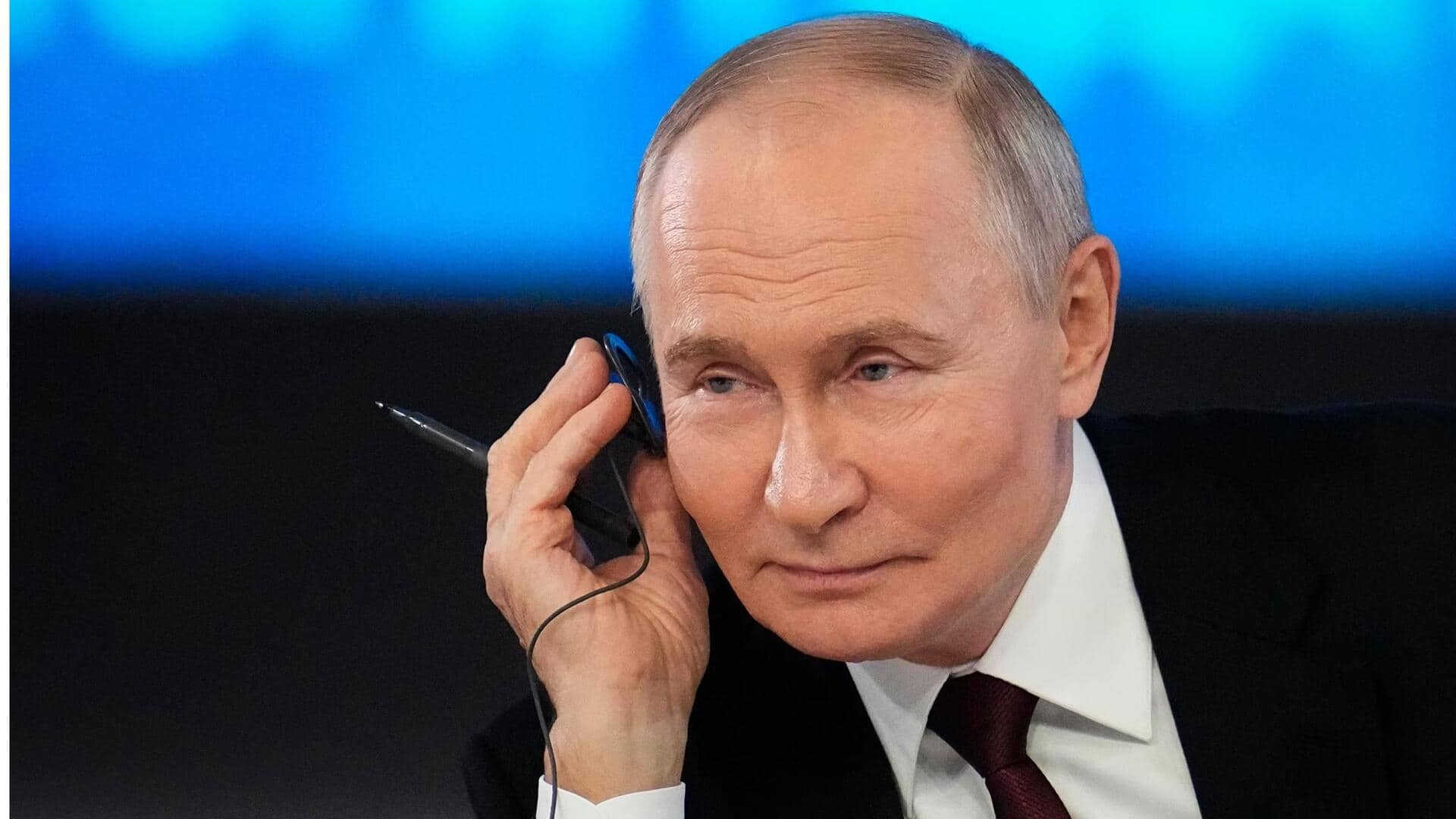
Putin calls for 'more passionate, engaging' alternatives to porn
What's the story
Russian President Vladimir Putin has pushed for the creation of "interesting and more passionate" content as an alternative to pornography. Recognizing the worldwide appeal of adult content, Putin said that simply banning it wouldn't solve the problem. "Porn sites are visited all across the world. It is not just an issue for us, but for everyone," he said at his annual press conference on Thursday.
Engaging alternatives
Putin's solution to global pornography consumption
Putin emphasized the importance of more enticing alternatives to porn. He suggested that they should be so interesting that people would be distracted from adult sites. "The answer can be what? In general, you could ban, but you should always offer an alternative that is more interesting than a porn site," he said. His remarks come amid worldwide worries over internet content and its influence on social norms.
Consumption statistics
Global consumption of adult content reaches billions
Globally, visits to adult content websites are in the billions, Statista reported. As of May 2024, Pornhub recorded some 5.49 billion visits per month, followed by Xvideos at 4.02 billion monthly visits. Putin's remarks also come amid concerns over Russia's declining birth rate crisis. The country's fertility rate is currently at 1.5 children per woman, below the 2.1 required for demographic stability.
Fertility measures
Putin's unconventional solutions to Russia's fertility crisis
To increase fertility rates, Putin had suggested that Russians should engage in intimate relations during work breaks in September. Health Minister Dr. Yevgeny Shestopalov backed the proposal, saying work commitments shouldn't get in the way of family expansion efforts during breaks. Last year, Putin had also urged Russian families to have more children, citing traditions of large, multigenerational families in some ethnic groups in Russia.
Demographic challenges
Russia's population decline and potential workforce shortages
Russia has been witnessing a population decline since the 1990s—a trend that has reportedly accelerated over the past three years due to the Ukraine war. An independent policy group, Re:Russia, estimated that around one million people might have fled Russia to avoid military enlistment. There are also concerns that Russia may face a severe workforce shortage and an increasing economic slowdown due to sanctions imposed by the West.